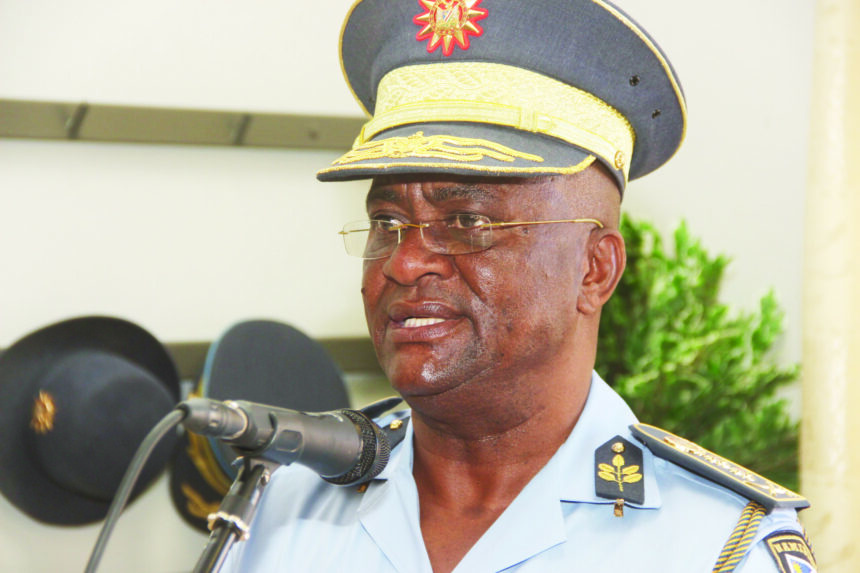In memorialising the passing of the Founding President Father of the Namibian Nation Sam Shafiishuna Nujoma, it is imperative that we share certain memories of his long life journey and enormous contribution to the struggle of his people for freedom, justice and independence. In the memorialisation, we included snippets about the creation of the Namibian Police Force, where he played a pivotal role, a fact highlighted in many of his eulogies.
I shall attempt to summarise this part of history. In 1976, the United Nations General Assembly (UNGA) officially confirmed Swapo as “the sole and authentic representative of the Namibian people”.
In 1978, UN Resolution 435 was adopted to pave the way for Namibia’s democratic elections and independence. Before that in 1976, the UN established the United Nations Institute for Namibia (UNIN) in Lusaka, Zambia, as an educational facility specifically designed to prepare and train Namibians to take up professional and leadership roles in an independent Namibia.
With that urge to train and prepare professionals, in 1981, as concerted efforts for Namibia’s independence intensified, the Swapo leadership, under the bold and dynamic leadership of Nujoma, decided to send a contingent of 230 People’s Liberation Army of Namibia (PLAN) combatants to the United Republic of Tanzania for basic police training – 1981- 1982 at Chuo Cha Polisi in Moshi. Thereafter, 32 officers were trained as probationary police sub-inspectors at Kurasini, Police Staff College in Dar-Es Salaam from 1982-1983.
The training was extremely tough and demanding. Nevertheless, the officers were eventually commissioned as such.
During the training, Nujoma occasionally carried out visits and was particularly keen on evaluating the general discipline and performances of his troops.
Reminiscing those days, he used to tell the Tanzanian instructors that “these are askaris; whip them into shape”, i.e. where discipline was wanting. After successful completion of the intense training courses, these officers were returned to the battlefield, where some of them became the nucleus of PLAN military council in their various capacities under the auspices of the commander-in-chief, Nujoma.
This development brought some new life to the overall functionality of the PLAN Military Council.
Genesis of police force
During January or early February 1990, then President-elect of the Republic of Namibia, Nujoma requested Her Majesty’s Government (HMG) of the United Kingdom for advisory assistance in terms of review and reconstitution, policing and training for the South West Africa Police.
As such, a technical committee, led by Sir Colin Sampson, CBE, QOM, HM Chief Inspector of Constabulary of Scotland, undertook a review and reconstitution of the South West Africa Police (SWAPOL) under the auspices of the Overseas Development Administration (ODA) of the British Government.
He was assisted by Assistant Chief Constable David Pickover, who was then also a special advisor to the designated minister of home affairs, now former president Hifikepunye Pohamba.
The leader of this technical committee was in constant consultation and reported directly to Nujoma on all developments. Equally, an officer trained in Tanzanian also served on that technical committee.
In the grand scheme of things, as the founding president started exercising his powers and authority, seismic activities of reforms and changes reverberated through the South West Africa Police establishment. Lt. General Raonga Jesaja Andima was appointed as a deputy inspector general of police, deputising General Piet Fouche, and later took over from him as the first black inspector general of the Namibian Police Force.
Assistant chief Constable David Allen, who was part of the British technical team, became an advisor to the inspector general of police. The Police Training College at Luipardvalley also acquired a British technical adviser – Superintendent Keith Roland. Importantly, former adversaries from both PLAN and SWAPOL groups were amalgamated as part of the reconciliation process of the new government into a new single force, the Namibian Police Force.
Joint career development and specialised courses were undertaken. Many of these officers also attended oversee command courses at the prestigious Bramshill Staff College as well as at West Yorkshire Detective School in the United Kingdom.
At the dawn of independence, some of these Tanzania-trained officers became the first area police commissioner, district police commissioners and station commanders. Others ascended to commissioned and or non-commissioned ranks in their various new responsibilities, filling up the structure and establishment of the new police force of an independent and sovereign nation.
At a later stage of their careers, these officers were accordingly appointed as deputy inspector generals of police and/or heads of directorates.In addition, based on the recommendations of the technical committee on the review and reconstitution of the SWAPOL, a team of chief inspectors, consisting mainly of officers trained in Tanzania, was dispatched to Canada to undertake a comprehensive training in a directive writing course at the Royal Canadian Mounted Police training facilities in Ottawa.
In summary, the founding president was a transformational leader, who had an engaged workforce that was empowered to innovate and help shape an organisation’s future success.
Without his visionary leadership and direct supervision, the smooth transition process to independence could have been extremely difficult.
Without a doubt, it is justifiable to give credit to the founding president as the architect of the Namibian Police Force. May his strong soul rest in eternal peace.
*Maj. Gen. (Rtd) J.B Tjivikua is an ex-combatant of PLAN and a former member of the technical team on review of the South West Africa Police.


